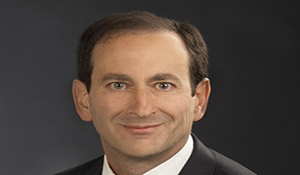Organizational Fear Means Failure to Tom Rieger

Interview With Tom Rieger on Overcoming Fear.
By Deborah Jeanne Sergeant.
After studying dozens of defunct companies both large and small, Tom Rieger found that fear contributed significantly to each company’s demise. Now president of NSI, Inc, he wrote Breaking the Fear Barrier: How Fear Destroys Companies From the Inside Out and What to Do About It (Gallup Press, 2010) to share his discoveries. Home Business Magazine spoke with Rieger about how fear impacts home businesses.
Home Business Magazine (HBM): How does fear affects would-be home entrepreneurs?
Tom Rieger (TR): The fear of losing what you’re holding onto can make you uncomfortable about stepping out of your comfort zone.
HBM: How does fear manifest itself in established home-based businesses?
TR: There are usually three ways in which fear shows up. It’s a pyramid of bureaucracy: parochialism, territorialism, and empire building. Parochialism is when you have an employee or you as a leader tend to view things strictly as a process or through an internal lens, not how your employees or your customers will view things. An assistant may view his job as solely getting you to sign forms you need without seeing it’s taking time away from business. It’s an employee that defines his world by the piece, not the puzzle.
Territorialism is when you have someone in your business who is exerting excessive control over budget, information, or other employees. That comes out of fear of loss of that control. Empire building is the last one. A home business is less subject to this. When you have a part of an organization that feels their “empire” is threatened, invariably you’ll have conflict. Empire building means open warfare within an organization. It’s a fear of losing self-sufficiency. It’s a fear of losing decision rights. Once I feel I own something, it increases in value to me, but only to me.
HBM: Is the goal to eliminate or manage fear, and how does one do it?
TR: Not all fear is bad. People need some pressure to perform. Fear that is focused on the wrong thing: That’s bad. Remove all the barriers. Try to understand what people are focusing on. Have they lost sight of the mission? The mission is the ultimate arbiter of every decision. Make sure the rules and policies are doing what you want without collateral damage. There are four types of rules: gospel, ghost, ground rules, and guidelines. “Gospel” rules are absolute rules you must follow. If people are doing things that don’t make sense but they’re doing them because that’s the way they’ve always been done, that’s the “ghost.” They aren’t rules that are really rules. “Guidelines” are flexible rules. “Ground rules” are when you make a judgment call, but don’t go out of bounds.
HBM: Many home entrepreneurs have worked in a traditional setting, and to form a virtual remote team may seem a fearful thing. What can home entrepreneurs do to feel more comfortable?
TR: Understand the world your virtual team lives in. Communication is essential; over communicate almost. Regularly have some face-to-face time, and make absolutely sure that you have transparency on sharing information. It takes a lot more work to keep information flowing and to keep it shared. It takes more collaboration to keep it going when you’re scattered across the country.
HBM: How can fear of failure effect entrepreneurs’ day-to-day actions, and what can they do to overcome it?
TR: People will do things to prevent the loss even if it means they’re also preventing the gain. They erect walls to keep form stepping off the cliff even if it prevents them from going forward. They hold onto processes, technology, and methods that are outdated. Don’t let your fear keep you from succeeding.
HBM: Some home entrepreneurs fear success. Why?
TR: Success means change, and change is different. It means you’ll have to give up something, and losing something is fearful. The business you have five years from now may be completely different than the one you have now. Maybe some of the sacred practices that drove you up to $1 million won’t be adequate to get you to $5 million. Develop a set of guiding principles to help you avoid risk, help customers, and operate better. You can step back and say, “Will this help or should I stick with what I have?” Don’t be afraid to evolve.
HBM: Rieger has operated a worldwide customer measurement program for a Fortune 100 company. Rieger and his wife of 17 years have a 13-year-old son and live in California. Visit http://nsiteam.com/
Comments